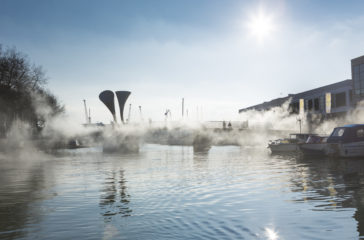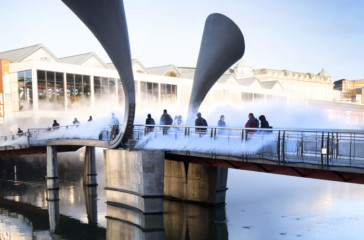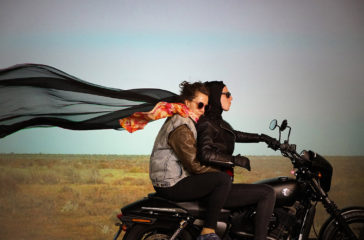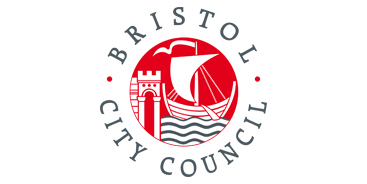Judith Knight will be chairing the panel event Getting Our House in Order: The Arts Responds to Climate Change at the #IBTsummit on 12 Oct 2019. Here she writes about the challenges to the Arts that climate change brings with it.
“I bought a copy of David Wallace-Wells’ book ‘The Uninhabitable Earth’ the other day. I had been wondering about reading it for some time, but had avoided it for fear of bringing down on my head a cloud of overwhelming despair. The young man in Waterstone’s urged me to read it. We talked about the Climate Strike we’d both been on the day before and how important it was that we all know the facts. He said the book doesn’t end in despair. I haven’t got to the ending yet. But it doesn’t start well in the optimistic stakes. The opening sentence simply says:
“it is worse, much worse, than you think. The slowness of climate change is a fairy tale, perhaps as pernicious as the one that says it’s not happening at all.”
I thought of my two tiny grandsons. And all the other children in the world whose future we are failing to protect.
I ‘stepped down’ from Artsadmin in July, an organisation I founded 40 years ago. 40 years of working with extraordinary artists – all of whom had something important to say. Over the last 15 years or so we worked with many artists focusing on the environment, climate change, the climate emergency – such as Platform, Encounters, Ackroyd and Harvey, Lemn Sissay, Michael Pinsky, the Laboratory of Insurrectionary Imagination, Amy Sharrocks, Sarah Woods, Clare Patey, Zoe Svendsen and many more – and through a wonderful long term Creative Europe funded partnership Imagine 2020– we produced the biennial 2 Degrees Festival– arts, activism and climate. 40 amazing years. But, just one chapter into ‘The Uninhabitable Earth’, how sobering to discover that half the carbon in the atmosphere was put there by the burning of fossil fuel during that time– in fact in the last three decades. This wasn’t a time of ignorance about the climate emergency, this was when we knew.As Wallace-Wells puts it ‘we have now engineered as much ruin knowingly as we ever managed in ignorance’.
“How sobering to discover that half the carbon in the atmosphere was put there by the burning of fossil fuel during… the last three decades. This wasn’t a time of ignorance about the climate emergency, this was when we knew.”
So what on earth can the arts do? Well for years I have answered the question ‘How do you know any of the arts projects you do make any difference?’ with the answer ‘I don’t know, but I do know that if we didn’t do them, we’d achieve nothing’. But now what was a serious concern about climate change has become a climate emergency. As Greta Thunberg says, ‘Our House is on fire’. It’s time for the arts – and its funders – to step up, to speed up, to take up the challenge. It’s not that there hasn’t been amazing work inspired by Tipping Point for example, and Julie’s Bicycle continues to be the leader we all need to be following. But it’s not enough now for us just to present brilliant artworks in the hope that they will inspire action, it is time to look more closely at how we work and what we do.
“It’s not enough now for us just to present brilliant artworks in the hope that they will inspire action, it is time to look more closely at how we work and what we do.”
Artsadmin and many other organisations and individuals signed up to the inspiring new initiative Culture Declares and made a promise to tell the truth, to be committed to justice and to work towards reducing our emissions to net zero by 2025. Five years away. That’s some commitment. What does that mean for theatre companies and the sets they make and tour? What does it mean for the buildings they run? What does it mean for artists fulfilling international commitments, performances, residences, festivals, collaborations? What does it mean all our international relationships? Is it unthinkable that we stop that – or at least slow down?
Someone said to me a few years ago that it was better that artists fly around the world than bankers. Indeed one would hope that artists change the world for the better, and bankers probably do quite the opposite, but their carbon footprint on a flight to New York is the same. Can we any longer justify this international work – so important in terms of cultural connections and understanding – can we justify the carbon? Now? When we’re on the brink?
Meanwhile, our country is fighting and bickering. It is divided more than ever by inequality, by the north/south divide, rural/urban differences, by the dreaded Brexit. Remainers and Leavers are fighting. The Labour party is fighting. The Tory party is fighting. The arts community is bickering. The call-out culture is rife. We are increasingly quick to condemn, and increasingly slow to understand. The more we argue, the more Steve Bannon and Donald Trump sit back and smile. The more we obsess about Brexit (which I do) the more we ignore Bolsonaro’s friends burning down the Amazon. While we criticise each other on social media, the Bahamas are destroyed by Hurricane Dorian. We fail to see who our real enemies are.
“The more we argue, the more Steve Bannon and Donald Trump sit back and smile. The more we obsess about Brexit (which I do) the more we ignore Bolsonaro’s friends burning down the Amazon. While we criticise each other on social media, the Bahamas are destroyed by Hurricane Dorian. We fail to see who our real enemies are.”
The climate emergency isn’t just a failure of people to act – it’s not easy to know what to do. It’s not just a failure of people to grasp it – it is hard to grasp. The climate emergency has had its terrifying flames fanned for decades by some of the world’s most powerful people and oil companies determined to deliberately hide the facts, including the USA’s current President. The press too: only the other day the Daily Telegraph described the momentous worldwide climate strikes – an estimated 4 million people in 1000 cities in 184 countries – as ‘a joke, childish socialism’. Greta Thunberg has angered them of course, climate deniers all over the world have had a go at her. Maybe, just maybe, she’s getting to them.
We are anxious. We are divided. We are bewildered. We’re in a frightening place, socially, politically and environmentally.
"What is terrifying is the intersection of these two different kinds of fires...the literal fires of the climate crisis and the political fires of this barbaric worldview that is not so gradually preparing people for a world in which millions are left to die." Naomi Klein
In this chaotic and scary world, the arts clearly have a job to do. Of course we must continue to create work that inspires people – all people – to take action, that raises awareness, that counters the complacency or downright hostility. We must join Art not Oil to protest more about fossil fuel sponsorship – it must simply be stopped. We must get our own houses in order and reconsider how we become carbon neutral in five years’ time. We must speak as one – whatever race or culture, whatever gender or sexuality, whatever age or class. We must know our real enemies and we must shout – louder – together.
We’ll debate all this at the IBT Summit, and by then I hope to have reached the more optimistic ending of ‘The Uninhabitable Earth’ and for those who haven’t read it, I’ll let you know there is one.”
Judith Knight is a Freelance Consultant, Founder and ex-Director of Artsadmin. She will be chairing the panel event Getting Our House in Order: The Arts Responds to Climate Change on 12 Oct 2019.









